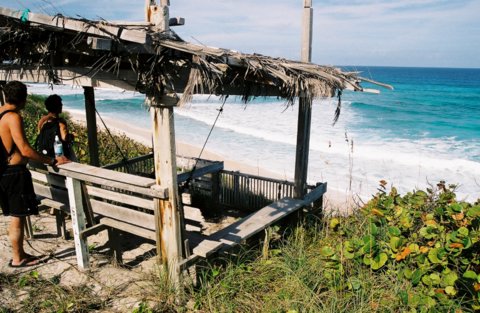
Most-frequently asked-questions:
What's
the first thing I need to know about buying here?
Can anyone own land in the Bahamas?
Will
I need a lawyer?
In what form is title to property given?
Do I need title insurance?
What's
the best way to furnish my new home on Harbour Island?
How are customs fees calculated?
What
other expenses will I face?
Is there an annual property tax?
Is this an investment?
Who
pays for what?
What are the benefits of applying for residency?
1. Shop in Nassau. Get there by plane or fast ferry. Expenses will include travel, lodging, food, and shipping.
2. Fly to the States. More expensive in some ways but the upside is more variety and sometimes significantly lower prices. In Ft. Lauderdale or Miami ship your goods to G&G, who will get them to Harbour Island. Once again, figure the costs of travel, room & board, etc. Then there are customs fees.
Example: You buy a table in Miami for $1000 and pay G&G $150 to ship it to Harbour Island. Total cost to you so far is $1150. Customs figures its fee on that amount; thus, 42% of $1150 = $483. Of course, now you have to get it home from the dock, which usually involves hiring a local trucker.
A good rule of
thumb in keeping track of your budget when you shop in the States is to mentally
add 50%; thus if its price tag is $100, it will ultimately cost you about $150
to enjoy it in your new Harbour Island home.
The Government Stamp Duty
The largest extra cost is for conveyance. This is a graduated tax on the conveyance of real property that is sometimes split between the vendor and the purchaser. Currently, the Duty is calculated as follows:
Under $20,000 2%
$20,000 $50,000 4%
$50,000 $100,000 6%
$100,000 $250,000 8%
Over $250,000 10%
Non-Bahamians
should also register their investment with the Exchange Control at the Central
Bank of The Bahamas to ensure that on resale they will be able to remit the
net proceeds of sale outside the Bahamas in the currency of the original investment.
The Seller pays:
1. A portion of the Government Stamp Tax
2. The real estate agents commission. The commission on the sale of residential developed property is 8% of the gross sales price; on the sale of undeveloped property, it's 10%.
3. The vendor's legal fees. The legal fees on a sale or purchase are usually one-half of 2½ % of the first $500,000, 2% of the next $500,000, 1% of the next $4,000,000 and ½% thereafter.
The Purchaser pays
1. A portion of the Government Stamp Tax
2. One-half of the purchaser's legal fees as detailed, to include the lawyers Opinion on the title to the property.
3. Recording fees ($3.50 per page) on the conveyance and other closing documents which need to be recorded.
4. Permit fees under the International
Persons Landholding Act if applicable.
The Bahamas has no income tax, capital gains taxes, or inheritance taxes. Also, there is no sales tax with the exception of the Stamp Duty paid on the conveyance of real property.Thus, you may want to consider applying for Permanent Residency, which is available to those who invest a minimum of $500,000 in the Bahamas. This investment may take the form of the purchase of real property with a minimum value of $500,000.
For more information,
e-mail info@briland.com.